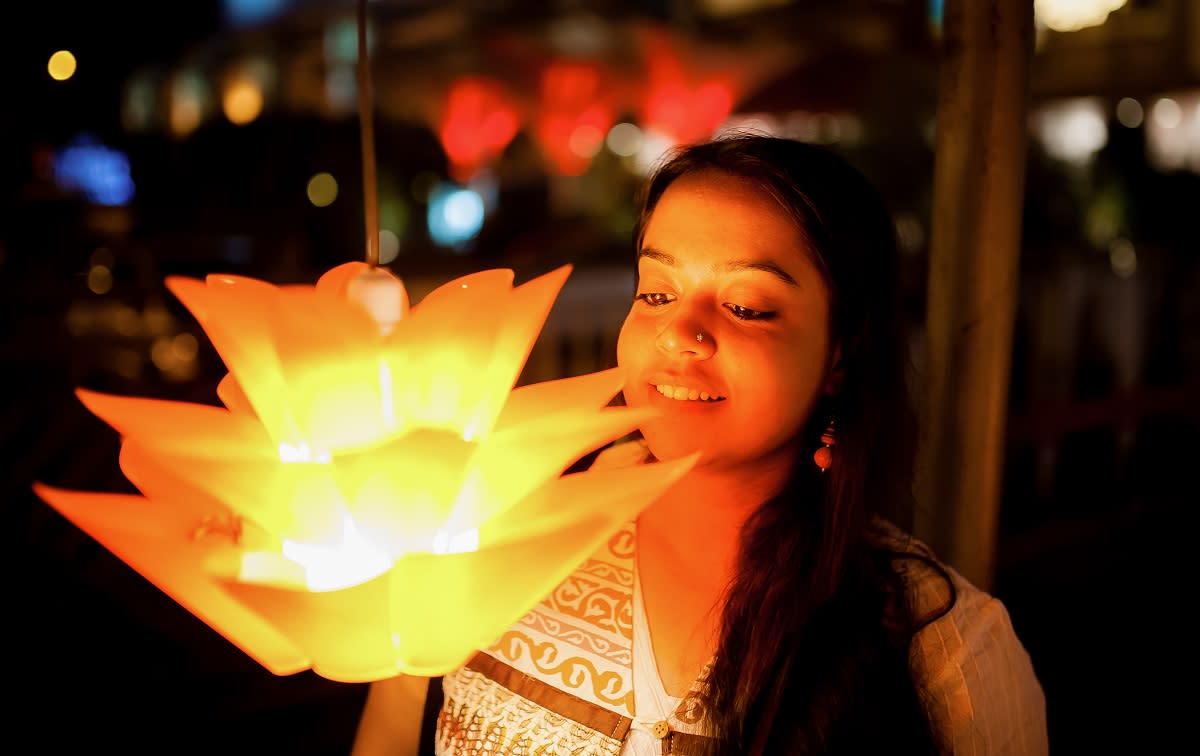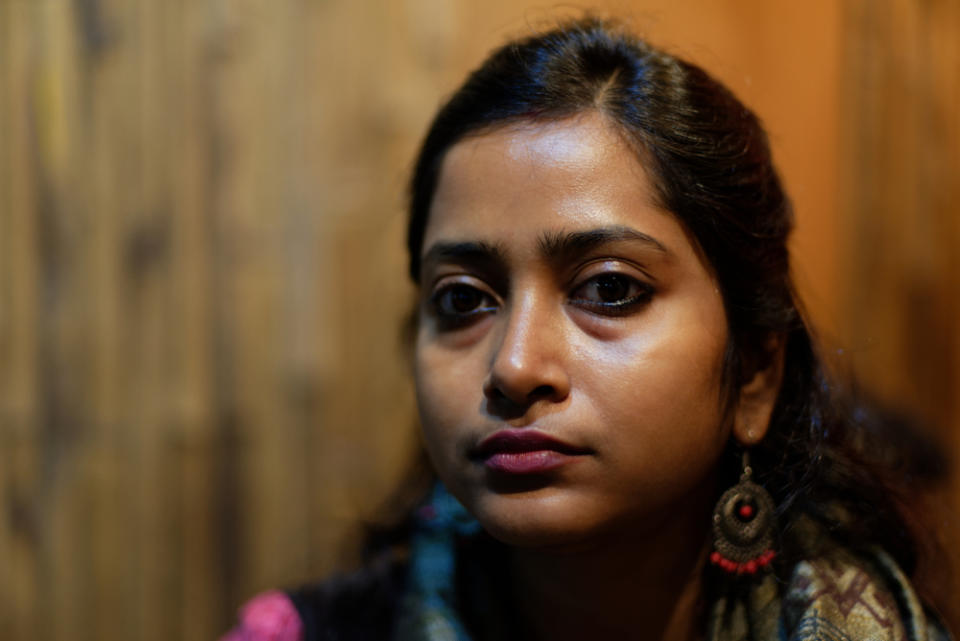#ZipItUp, Patriarchy. Single Indian Women are Here to Stay.

When Virginia Woolf wrote A Room of One’s Own in early 20th century, the English author was asserting the need for women’s spatial and economic independence.
In India, 90 years later, a new generation of women is living the same message – by staying alone and not letting society decide their marital status.
They are mostly urban professionals – financially independent, liberal thinking single Indian women, who are unapologetic about their lifestyle choices.
In India, conventions dictate that women belong to their families till they are married. An unmarried girl’s sexuality is consequently a matter of honour for the family. Women who choose to stay single are often assumed to have ‘loose’ character and are judged for their freedom.
And yet, today, a growing number of women are saying goodbye to the idea of marriage and the conventional idea of attaining respect in society through marriage and child bearing. In fact, between 2001 and 2011, there was a jump of over 34 percent in the number of single women in India to 71.4 million: the maximum number of single women in its history.
Many women are found to be choosing to not live with their families, due to the pressures of finding a ‘good’ spouse and settling down. The constant match-making discussions motivate many to move out.
Elishia Sabrina Vaz, a masters student of Sociology at Manipal University, says, “The independence which I enjoy staying away from home and not conforming to the pressure of an early marriage motivates me to pursue my dreams.”

The idea of choice
Indeed, women are slowly and steadily reclaiming the idea of ‘choice.’ Still, societal acceptance of their ‘choice’ is largely unheard of, and minimal at best.
In the book titled Single by choice, several notable single women – including writers like Sharda Ugra and Bama – reveal their experiences of being unmarried adults in India.
Sharda writes, “My friend, standing in the middle of my living room in Delhi, asked, “Did you do all this?” He was waving his hands around at sofas, cushions, a carpet, a bookcase, paintings, photos on the wall, a TV set in a corner. The table was set for lunch, mats etc, and my friend was half baffled, half bemused as he acknowledged curtains, crockery, photos, music and books. Yes, of course, I’d done all this. Who else?”
The idea of a woman single-handedly taking charge of their life and setting up a household is still alien to the Indian imagination.
Kalpana Sharma, editor of Single By Choice, tells MAKERSIndia, “A great deal needs to be changed in Indian society. I have always argued that as women get educated, they get economic freedom; (but) the fundamental question of choice vanishes when it comes to marriage.”
Homogenous trend
Even though the data shows an upward trend, women choosing to stay single is still restricted to metro cities like Mumbai, Delhi, and Bengaluru. However, certain fundamental problems are same for women in both metro cities as well as smaller towns.
Kalpana says, “The issue is a long word – patriarchy. It is the way our institutions are run, where there is male entitlement and designated roles for women, which are mostly inferior.”
She goes on to add that most issues are the same when it comes to women who choose to be single, despite class, religion, caste, and geographical boundaries. She highlights the case of Bama, a successful Tamil writer who chose to be single very early in her life and devoted her life to writing and activism.
Bama’s experience, Kalpana says, is itself unique in that even after being a successful writer, she still has to endure the additional burden of being a woman and a Dalit.

“It (patriarchy) is like an invisible thread which is running through our society,” she notes.
A strong woman’s choice
Admittedly, a woman with financial independence has true autonomy: a concept alien to the average Indian.
For example, high real estate prices in Indian metro cities often demand even well-paid professionals to share their domestic space with a friend or housemate. But in the case of women, even if a woman can afford to stay alone, she is frowned upon – including by landlords who tend to prefer family tenants.
Similarly, Bengaluru-based communications professional Sharmistha Roy, 35, says that although her parents were supportive of her choice to stay unmarried, they are often questioned by the extended family.
“Likewise, some of my former colleagues have shown a tendency to gossip about ‘the single woman’ and know more about my life. They often have this preconceived notion that I have commitment-phobia. Some friends even assume that I am unhappy being single, and that I was hurt by some bad experience or break-up. People find it hard to accept a lifestyle choice without baggage.”
No wonder then that single women trying to rent a home often have to deal with the house owner’s questions about their marital status, lifestyle habits, family who may visit, and more importantly, male visitors.
Sharmistha, who calls herself a headstrong person, says that she had to stop smoking in the balcony due to her neighbours’ disapproval – something a male tenant may not be at the receiving end of.
“I am concerned for my safety. There are more women choosing to be single nowadays, but we have a long way to go in accepting them. People should prioritise bigger issues rather than poke their nose into the life of the girl living alone next door,” says Sharmsitha.

Welcoming the single women
Interestingly, with data showing an increase in more Indian women choosing to be single, there’s one section that’s taking notice.
An increasing number of corporates are identifying single women as a new consumer base worth targeting, and brands are increasingly re-positioning themselves to cater to this new breed of independent Indian women.
Harshil Vaidya, an advertising professional, says, “Gone are the days where a fashion or beauty product brands would ask agencies to target home-makers. Their user base has shifted. Brands have started identifying women as individuals with freedom of choice and independence; they want to be a part of this evolution.’’
Advertisements like Puma’s recent campaign called ‘Propah Lady,’ starring Bollywood actress Sara Ali Khan, sprinter Dutee Chand, and Boxer Mary Kom, are certainly pushing the envelope in this regard. In the advertisement they break down the conventional idea of a “proper lady”, showing that there is no single definition of that idea.
The endgame is that an adult, single woman choosing to be unmarried is not an anomaly anymore, and her choice of lifestyle is not for anyone to question either. The message is loud and clear: the modern Indian woman is telling patriarchy to zip it up.
(Story by Aishik Purkait and Athira Nair; Editing by Tenzin Pema)
——————————————————————————————————————————————-
MAKERS India’s #ZipItUp campaign aims to change the conversation around sexual violence against women, by first shutting down unhealthy oratory bashing of women and promoting constructive debates around gender equality. Whether it is the victim-blaming narrative or the norms of patriarchy, which hurt even men, it’s time to rewrite the rules. OUR TIME IS NOW to join hands and make them Zip It Up.


